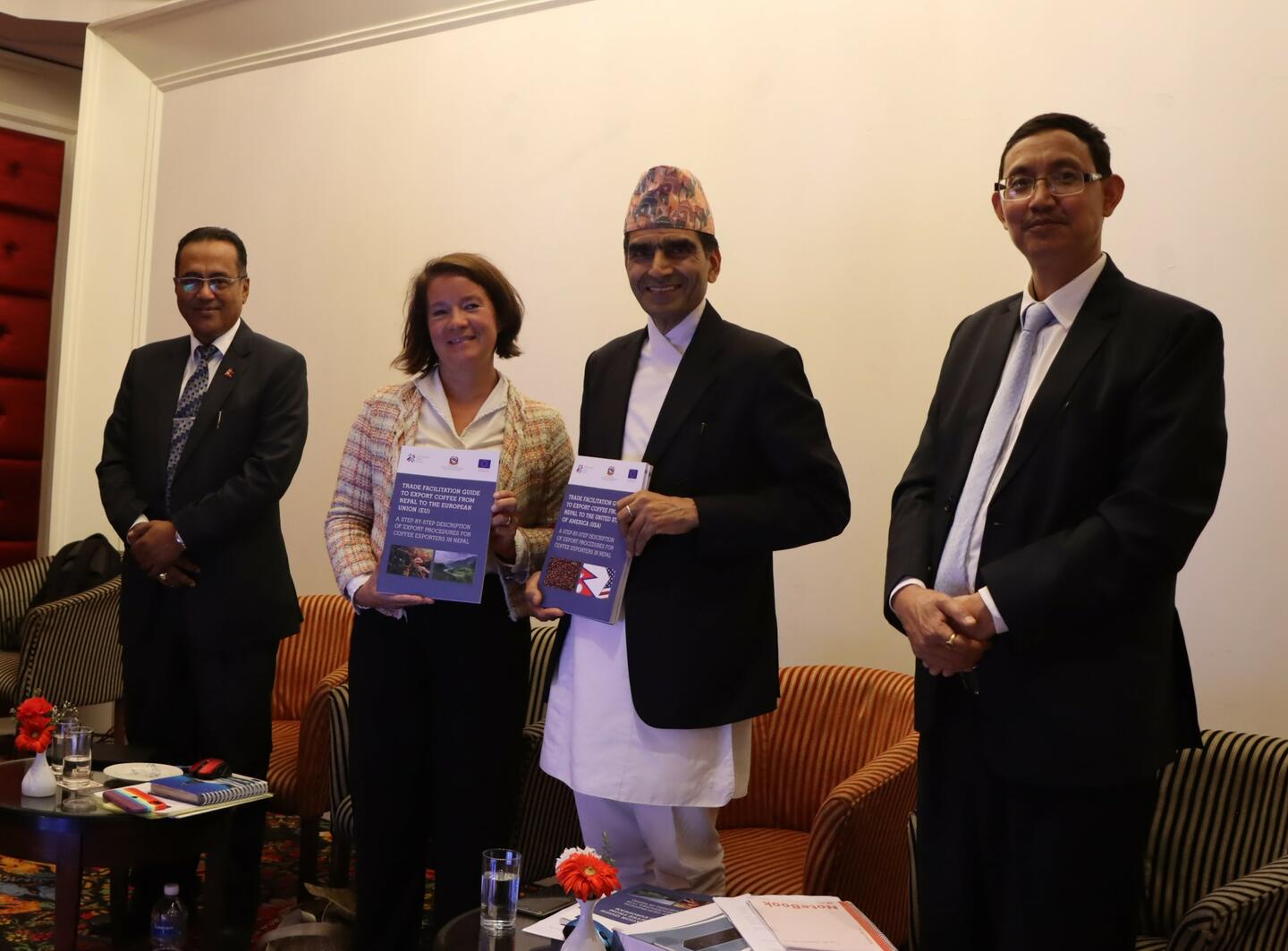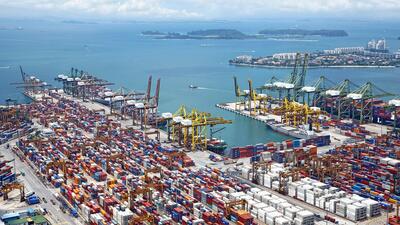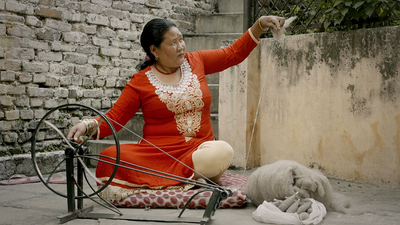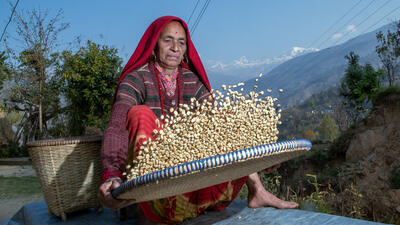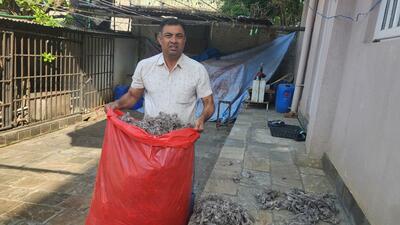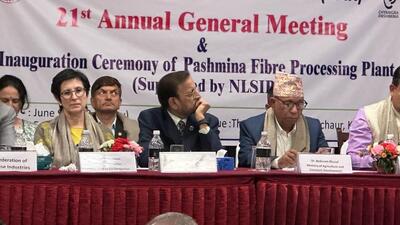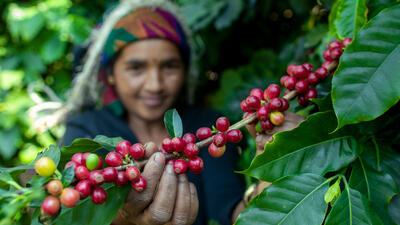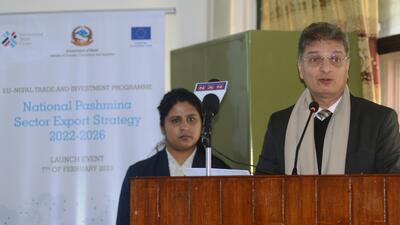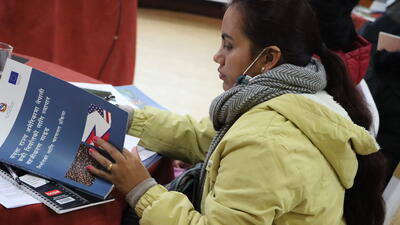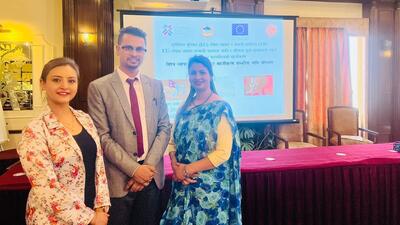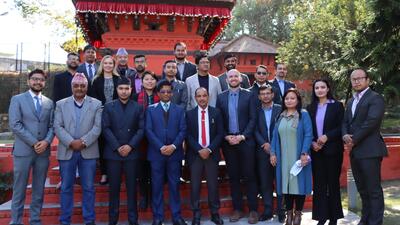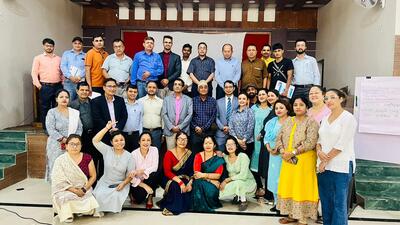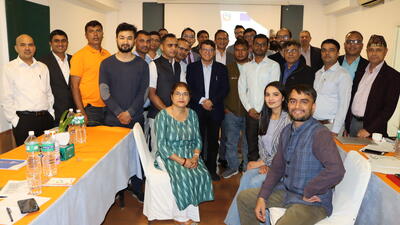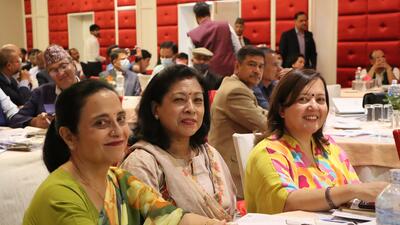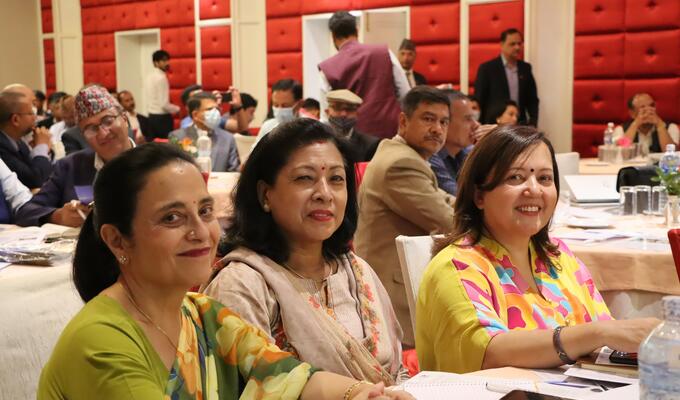
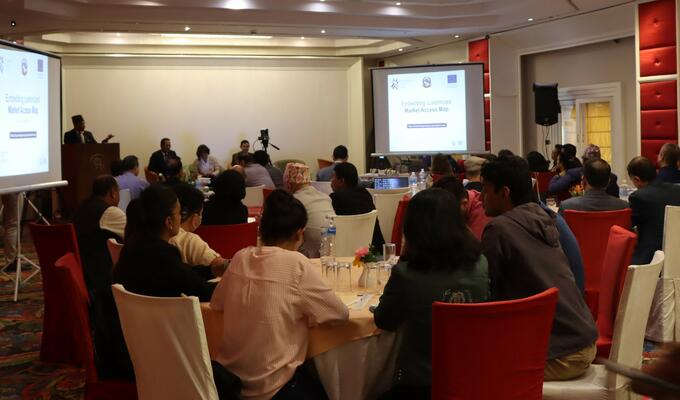
Nepal: Coffee Export Guides, Market Access Map and Quality for Trade Platform launched
Kathmandu (22 June 2022) - Three new tools will connect Nepalese companies to international markets with support from the European Union.
In Nepal, small and medium-sized enterprises often cannot access new markets due to complex procedural requirements and lacking knowledge of international quality standards when it comes to exports. In addition, small businesses struggle to find and use trade-related information to their advantage.
Two separate Coffee Export Guides for Europe and the United States will help Nepali coffee exporters navigate export-related formalities and procedures more easily. Next to the Guides, a customized Market Access Map by the International Trade Centre (ITC) and a Nepal Quality for Trade Platform will help the private sector to navigate the trade landscape in a more informed way.
Developed from the trader’s perspective, the export guides provide a step-by-step description of the export procedures and requirements that exporters in Nepal need to comply with to ship their coffee products out of the country.
While the ITC Market Access Map facilitates small and medium-sized enterprises (SMEs) in navigating the ever-changing export and import regulations and requirements across over 190 markets, the tailored Nepal Quality for Trade Platform serves as a one-stop-shop allowing users to discover relevant quality standards for coffee in targeted markets, obtain guidance on quality-related topics, share best practices and connect with the relevant institution and individuals who can offer assistance and gain insights from those who have already been successful.
Speaking at the launch with high-level government officials, Ganesh Prasad Pandeya, Secretary at the Ministry of Industry, Commerce and Supplies said: "These three tools launched today are going to be very useful for the entire business sector. Although Nepal is rich in resources and we have various goods that we can export, the lack of technical expertise creates hindrances for us. Such tools largely help us overcome these problems." He also stated that Nepal needs greater international support to address the gaps the country is going to face as it is graduating from the status of least developed to a developing country by 2026.
According to Nona Deprez, Ambassador of the European Union to Nepal, the tools prepared under EU-Nepal Trade and Investment Programme will provide reliable guidelines to Nepalese entrepreneurs: "We want to encourage Nepal and Nepalese SMEs to benefit from such support. Nepalese coffee is loved a lot in Europe, we want more Europeans to enjoy Nepalese coffee."
Overall, 80 representatives from the private sector attended the launch event organized by the International Trade Centre in collaboration with the Ministry of Industry, Commerce and Supplies under the EU-Nepal Trade and Investment Programme.
About the project
The EU-Nepal Trade and Investment Programme, funded by the European Union (EU), aims to strengthen Nepal’s path towards more inclusive economic growth and greater integration into regional and global value chains.
